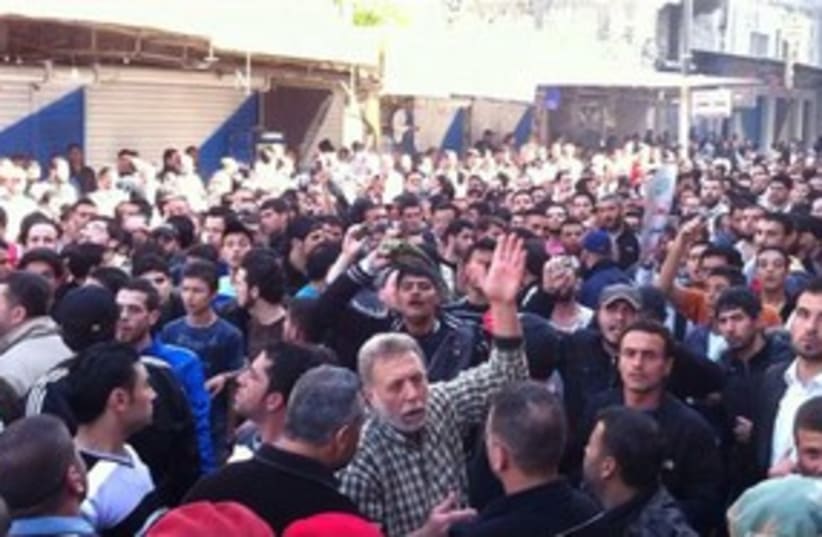JPost.com staff contributed to this report.
'Five people killed in renewed Syrian clashes'
Witness says 4 protesters killed in Banias; 1 soldier dies in ambush on army patrol; death toll from weekend protests reaches 42.

JPost.com staff contributed to this report.